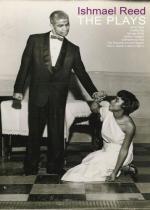|
This section contains 266 words (approx. 1 page at 300 words per page) |
Ishmael Reed, regarded as one of the greatest satirists in America since Mark Twain, is also one of the best known multi-faceted writers of the twentieth century; his titles include novelist, poet, publisher, playwright, literary critic, songwriter, editor, television producer, founder of the multicultural group Before Columbus Foundation and There City Cinema, and essayist. In 1967, he changed the American literary scene when he published The Free-Lance Pall-bearers, a novel that set the tone and aesthetic for the eight novels, five collections of poetry, four essay books, and several anthologies that followed. With a writing technique called Neo-HooDoo Aesthetic or Neo-HooDooism, a multicultural style based on Voodoo and African-based religious beliefs which he mixed with elements from other cultural traditions, Reed has consistently supported multiculturalism and argued for a multicultural society in the United States and the world over. Though literary critics have been baffled by his innovative techniques, which include combining several seemingly non-related elements from different time periods into his writ-ings—one novel, Mumbo Jumbo (1972), for example, contains photographs, drawings, footnotes, quotes, and a partial bibliography—he has been nationally and internationally recognized as the Charlie Parker of American Fiction. In June 1998, Ishmael Reed received the MacArthur Foundation Award.
Further Reading:
Bruce, Dick, editor. Conversations with Ishmael Reed. Jackson, University Press of Mississippi, 1995.
McGee, Patrick. Ishmael Reed and the Ends of Race. New York, St. Martin's Press, 1997.
Reed, Ishmael. Writin' Is Fightin': Thirty-Seven Years of Boxing on Paper. New York, Atheneum, 1990.
——. Mumbo Jumbo. New York, Atheneum, 1972.
——, editor. Multi America: Essays on Cultural Wars and Cultural Peace. New York, Viking, 1997.
|
This section contains 266 words (approx. 1 page at 300 words per page) |


